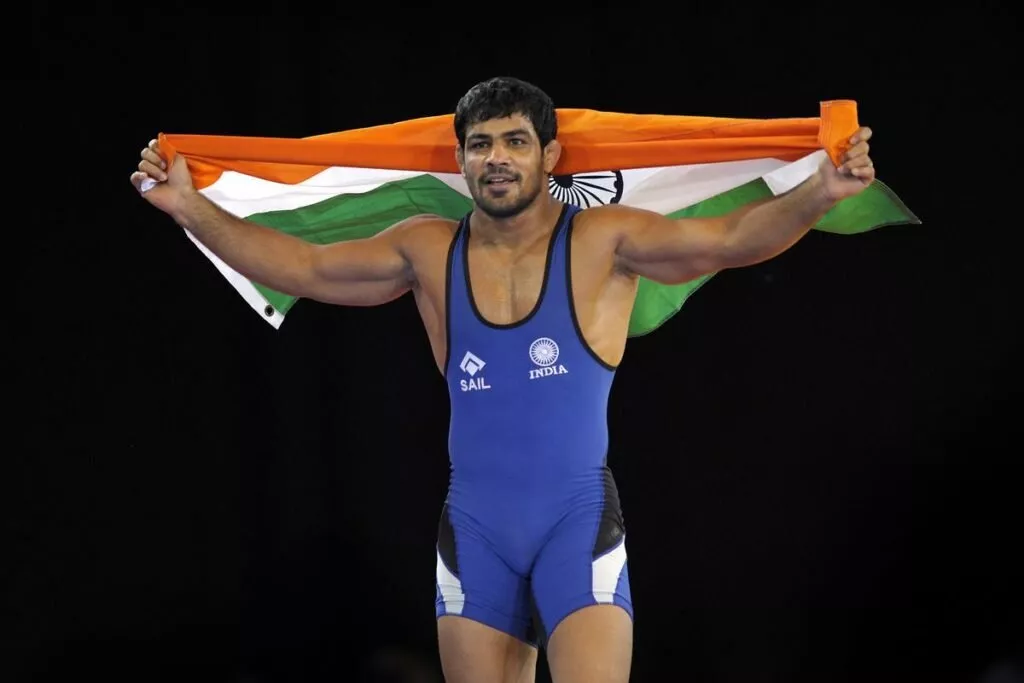Explained: What is Repechage in Olympic Wrestling?

(Courtesy : insidesport/toi/twitter)
India has bagged three Olympic medals due to this rule.
There are two different categories in Olympic wrestling: Freestyle and Greco-Roman. Freestyle is the more popular form of wrestling among the two. In freestyle, a wrestler can hold their opponent's legs in offence and defence, to overthrow or pin them onto the mat and earn crucial points in the process. However, in Greco-Roman, wrestlers cannot hold their opponent below the waist to trip them and use the legs to perform any move on the mat.
Both the categories have one thing in common and that is the repechage system. Let's take a look at how the system works at the Olympic Games:
What is it and how does it work?
The word repechage is derived from the French term, repecher, which means rescue. It is, in general, a practice in series competitions that allows participants who failed to qualify for the next round against a strong opponent.
In wrestling, as the name suggests, it comes into effect for the wrestlers who lost in the pre-quarterfinals or in the later rounds. It allows the wrestlers a chance to revive themselves in the competition and compete for a bronze medal. It should be noted that the wrestler can revive themselves only if the opponent they have lost against reaches the final.
The theory is that a worthy wrestler should not be penalized just because they were paired with another strong wrestler very early on in the draw. The losing semi-finalists earn themselves a spot in the bronze medal playoffs, but not against each other. They will face off against the wrestlers who come through the repechage rounds. As a result, two wrestlers win bronze medals in Olympic wrestling.
When did the rule first come into effect?

The International Olympic Committee (IOC) changed the rules in 2008 to introduce a knockout format for the wrestling competition. The 2008 Beijing Olympics were the first major event to employ repechage. The competition consisted of a single-elimination tournament, with a repechage used to determine the winner of two bronze medals.
Each wrestler who lost to one of the two finalists moved into the repechage round. It culminated in a pair of bronze medal matches featuring the semi-final losers each facing the remaining repechage opponent from their half of the bracket. This new rule benefitted several wrestlers. Wrestlers could now get a second chance to fulfill their aim of winning an Olympic medal.
How have Indians benefitted from the repechage rule?
Over the years, as many as three Indian wrestlers have benefitted from the repechage rule at the Olympic Games. Legendary Indian wrestler Sushil Kumar bagged his first Olympic medal in Beijing in 2008. He lost the 66kg preliminary round to eventual silver medalist Andriy Stadnik. But, he was given a lifeline as the Ukrainian reached the final.
His first challenge in the repechage round was against American wrestler Doug Schwab. Sushil won the contest to setup a clash versus Belarusian grappler Albert Batyrov. He picked up another victory to march on. In the bronze medal clash, he upstaged Kazakhstan’s Leonid Spiridonov, to bring home the country's second Olympic medal in wrestling.
At London 2012, it was Yogeshwar Dutt in the men's freestyle 60kg category, who earned bronze for India via the repechage. He made a positive start as he defeated Bulgaria's Anatolie Guidea in his first bout. Dutt, however, lost to four-time World Champion Russia’s Besik Kudukhov in the pre-quarters. He also sustained an eye injury during the match, but was given a second chance after Kudukhov reached the final.
The 2014 Commonwealth Games gold medalist overcame the odds to beat Puerto Rico’s Franklin Gomez and Iran’s Masoud Esmaeilpour in the initial repechage rounds. He then clinched the bronze medal bout against North Korea’s Ri Jong-Myong.
Sakshi Malik continued the trend of Indian wrestlers claiming bronze via repechage at Rio 2016. She made a good start in the 58kg category. However, Malik lost her quarterfinal bout to Russia's Valeria Koblova. As Koblova went on to reach the final, she revived her campaign.
She upstaged Mongolia’s Purevdorjiin Orkhon and later Asian champion Aisuluu Tynybekova of Kyrgyzstan to win a historic bronze. In doing so, Malik became the first Indian female grappler to win an Olympic medal.
The trick to repeat in Tokyo 2020?
At the ongoing Tokyo Olympics, India can once again win a medal in wrestling via the repechage rounds. Anshu Malik lost her opening bout against reigning European champion Iryna Kurachkina of Belarus. However, Kurachkina has gone on to reach the final of the women's freestyle 57kg category. This means that Anshu Malik will be contesting for a medal via the repechage rounds.
The 19-year-old will have to get past Rio 2016 silver-medalist Valeria Koblova of ROC in the first round repechage match. If she manages to do so, the young Indian will be up against 2021 European Championships bronze medalist Evelina Nikolova of Bulgaria.
If someone would have told Anshu Malik before the start of Tokyo 2020, that she will have two opportunities to claim an Olympic medal, she would have gladly accepted it. The teenager will be aiming to continue India's rich tradition of clinching medals via repechage rounds. Infact, this could be the fourth Olympic Games in a row. Hence, the repechage rule has proved to be a blessing in disguise for Indian wrestling and it might well continue.
For more updates, follow Khel Now on Twitter, Instagram and join our community on Telegram.
Where passion meets insight — blending breaking news, in-depth strategic analysis, viral moments, and jaw-dropping plays into powerful sports content designed to entertain, inform, and keep you connected to your favorite teams and athletes. Expect daily updates, expert commentary and coverage that never leaves a fan behind.